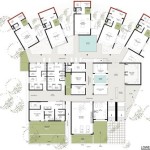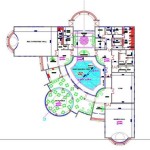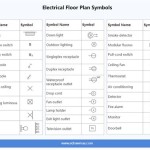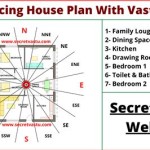Understanding House Plans: Essential Aspects to Consider
Creating a home that meets your vision and lifestyle requires careful planning and attention to detail. House plans play a crucial role in this process, serving as a blueprint for your dream home. Understanding the essential aspects of house plans is paramount to ensuring a successful building experience and a home that aligns perfectly with your needs.
1. Site Planning and Orientation
Before designing the house itself, it's essential to consider the site where it will be built. Factors such as topography, sunlight exposure, views, and access to utilities must be taken into account. Proper site planning ensures efficient land usage, optimizes natural light, and enhances the overall aesthetics of the home.
2. Floor Plans and Layout
The floor plan defines the arrangement and flow of spaces within the house. It determines the number of rooms, their size, and how they connect to each other. Consider the relationship between different spaces, including privacy, functionality, and traffic flow. Open floor plans promote a sense of spaciousness, while compartmentalized layouts provide more privacy.
3. Elevations and Exterior Design
While the floor plan focuses on the interior, elevations and exterior design address the outward appearance of the home. Visualize the house from all sides, considering the architectural style, roofline, window and door placement, and the overall aesthetic impact. The exterior should complement the surrounding environment and reflect your personal taste.
4. Structural Elements
The structural integrity of the house is vital to its safety and durability. House plans should include details on the foundation, framing, and roofing systems. These elements must conform to building codes and withstand the anticipated loads, including wind, snow, and seismic forces.
5. Mechanical and Electrical Systems
Modern homes rely on a complex network of mechanical and electrical systems for comfort, convenience, and safety. House plans should incorporate details on the plumbing, heating, cooling, electrical wiring, and lighting systems. These systems must be designed to meet the specific requirements of the home and ensure efficient operation.
6. Energy Efficiency and Sustainability
Sustainability and energy efficiency have become increasingly important considerations in home design. House plans should include measures to reduce energy consumption, such as insulation, energy-efficient appliances, and solar panels. By incorporating sustainable features, you can lower utility costs, minimize environmental impact, and create a healthier living environment.
7. Legal and Regulatory Compliance
House plans must comply with local building codes and zoning regulations to ensure safety and adherence to legal requirements. These regulations govern aspects such as setbacks, height restrictions, and accessibility features. Before submitting plans for approval, consult with local building officials to ensure compliance.
Understanding the essential aspects of house plans is crucial for creating a home that meets your specific needs and aspirations. By carefully considering each element, from site planning to sustainability, you can ensure a successful building process and a home that you love for years to come.

House Plans How To Design Your Home Plan

House Plans How To Design Your Home Plan

House Plans How To Design Your Home Plan

Simple 3 Room House Plan Pictures 4 Nethouseplans Building Plans Designs With Small Modern

Where You Can Buy House Plans Live Home 3d

House Plan Maywood Sater Design Collection

House Plan 94300 Quality Plans From Ahmann Design

22 House Design With Floor Plans You Will Love Simple Architectural Two Story Beautiful

Small House Plans Popular Designs Layouts

Modern House Design Floor Plans And Designs








